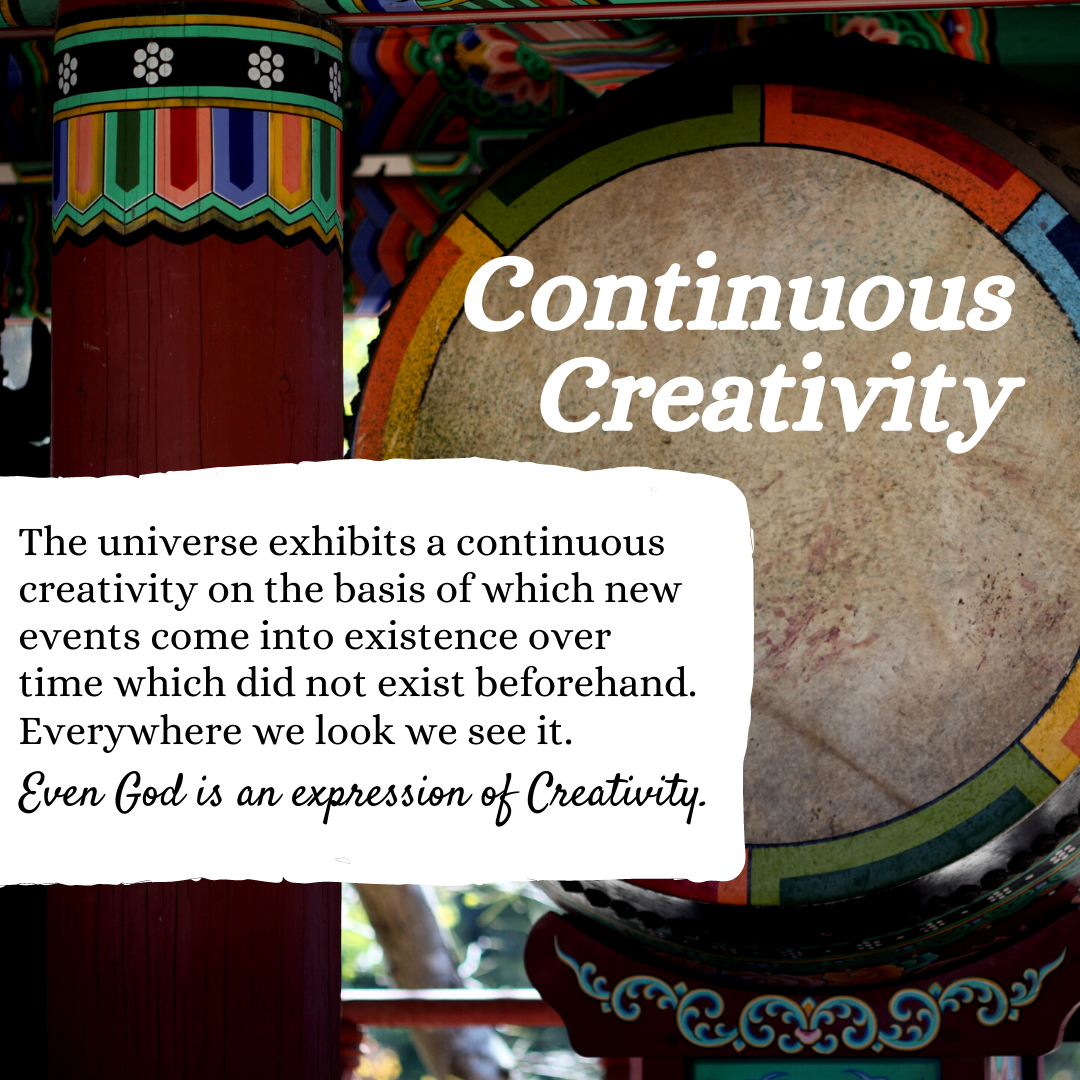
Photo by Miguel A Amutio on Unsplash
Two Ultimates: Creativity and God
Process philosophers and theologians propose that there are a variety of ultimate realities in Whitehead's philosophy, each unique and real.
Some speak of three: Creativity, God, and Interconnectedness. I myself speak of five: Creativity, God, Interconnectedness, the Realm of Pure Potentiality, and the Present Moment of Experience. The purpose of this page is not to argue about the number of ultimates; it is instead to consider two of them, Creativity and God.
For traditional monotheists, most of them Abrahamic in sensibility, the very idea that there may be something more ultimate, or at least as ultimate, as God is irritating and wrong-headed. If God is "God," they say, then only God is ultimate. For those who feel this way, there are ways of seeing a unity between God and Creativity that make things easier. Some note that Creativity is actual only in its instances and that God is the primordial instance. Others lean in a more mystical direction and speak of Creativity as the Godhead and "God" as its primary manifestation in the universe. Still others speak of Creativity as the Tehom, the chaos, from which God creates the universe as described in Genesis. All are attempts to say, one way or the other, that God is much more ultimate and important than Creativity. This is an understandable move for traditional monotheists, My own hope is that forms of process theology will emerge which build upon each of these three options.
However, the idea of diminishing the status of Creativity is not an especially helpful move for those who sense that there truly is an ultimate activity of which all things are expression; that this energy has no beginning or end; that it is neither good nor evil but instead expressed in all events, whether good or evil; but who simultaneously sense that there is a God of non-coercive love who, while different from this energy, is also an expression of it. Here I am thinking about open and relational theologians, among others. For them, Whitehead's philosophy is helpful in its own right, because it speaks to this intuition. It also helps explain why, despite God's goodness, there is so much evil in the world, or at least tragedy. Whitehead's idea of Creativity supports the idea that what happens in the world and the universe is a result, not of God's creativity alone, but rather of the co-creativity of God and the universe. Moreover, for some people, the intuition of an ultimate energy is valuable in its own right because it speaks to a sense that all things are together as grounded in a common energy. In process philosophy and theology there are, and can be, many different ways of understanding God and Creativity. Whitehead's is but one.
- Jay McDaniel
Some speak of three: Creativity, God, and Interconnectedness. I myself speak of five: Creativity, God, Interconnectedness, the Realm of Pure Potentiality, and the Present Moment of Experience. The purpose of this page is not to argue about the number of ultimates; it is instead to consider two of them, Creativity and God.
For traditional monotheists, most of them Abrahamic in sensibility, the very idea that there may be something more ultimate, or at least as ultimate, as God is irritating and wrong-headed. If God is "God," they say, then only God is ultimate. For those who feel this way, there are ways of seeing a unity between God and Creativity that make things easier. Some note that Creativity is actual only in its instances and that God is the primordial instance. Others lean in a more mystical direction and speak of Creativity as the Godhead and "God" as its primary manifestation in the universe. Still others speak of Creativity as the Tehom, the chaos, from which God creates the universe as described in Genesis. All are attempts to say, one way or the other, that God is much more ultimate and important than Creativity. This is an understandable move for traditional monotheists, My own hope is that forms of process theology will emerge which build upon each of these three options.
However, the idea of diminishing the status of Creativity is not an especially helpful move for those who sense that there truly is an ultimate activity of which all things are expression; that this energy has no beginning or end; that it is neither good nor evil but instead expressed in all events, whether good or evil; but who simultaneously sense that there is a God of non-coercive love who, while different from this energy, is also an expression of it. Here I am thinking about open and relational theologians, among others. For them, Whitehead's philosophy is helpful in its own right, because it speaks to this intuition. It also helps explain why, despite God's goodness, there is so much evil in the world, or at least tragedy. Whitehead's idea of Creativity supports the idea that what happens in the world and the universe is a result, not of God's creativity alone, but rather of the co-creativity of God and the universe. Moreover, for some people, the intuition of an ultimate energy is valuable in its own right because it speaks to a sense that all things are together as grounded in a common energy. In process philosophy and theology there are, and can be, many different ways of understanding God and Creativity. Whitehead's is but one.
- Jay McDaniel






